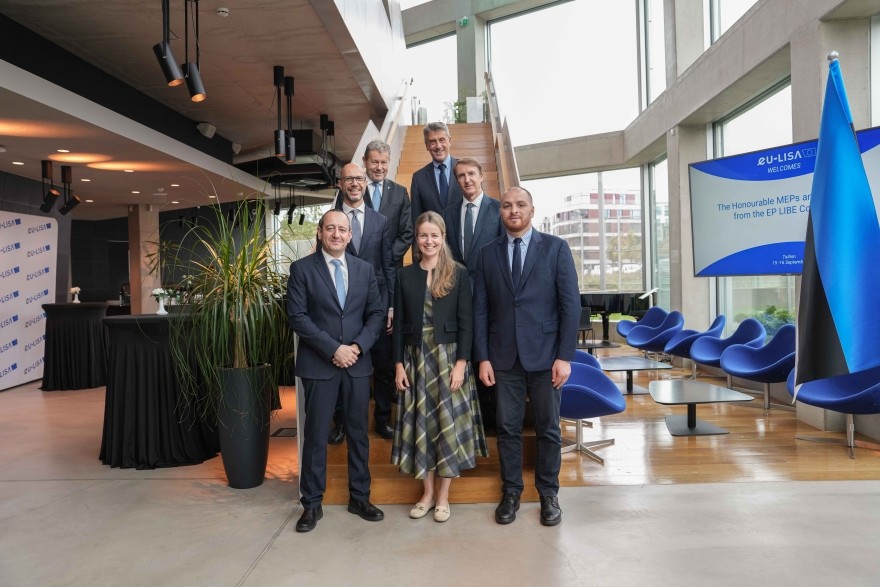Actions

On 15–16 September 2025, a delegation of the European Parliament’s Committee on Civil Liberties, Justice and Home Affairs (LIBE) visited eu-LISA Headquarters in Tallinn. The delegation consisted of two Members of the European Parliament (MEPs) – Mr Geadis Geadi (ECR, Cyprus) and Mr Matthieu Valet (PfE, France) – accompanied by two political advisers and a representative of the LIBE Secretariat.
The two-day mission provided an opportunity for in-depth exchanges between the Agency’s management, parliamentarians and advisers on the implementation of Europe’s large-scale IT systems in the areas of freedom, security and justice.
Discussions focused primarily on the Interoperability Roadmap, with particular emphasis on the Entry/Exit System (EES), which is approaching its progressive roll-out, and on preparations for the European Travel Information and Authorisation System (ETIAS), scheduled to launch in 2026. eu-LISA presented the readiness of the central EES, the outcomes of recent large-scale rehearsals, and the extensive work under way with Member States to ensure a smooth entry into operation. Together with ETIAS, these milestones form part of a broader new information architecture for border management, alongside the Schengen Information System (SIS), the revised Visa Information System (VIS) and the interoperability components connecting them.
The visit also addressed eu-LISA’s role in implementing the new Pact on Migration and Asylum, including the Eurodac Recast, the Screening Regulation and the DubliNet communication channel. Discussions further extended to developments beyond the Interoperability Roadmap, such as the Prüm II Router, the API-PNR Router and the EU Visa Application Platform.
Members of the Committee were also briefed on eu-LISA’s contribution to the digital transformation of the justice domain through systems such as e-CODEX, ECRIS-TCN, ECRIS-RI and the JITs Collaboration Platform, as well as the Agency’s ongoing research and innovation activities.
Security and data protection safeguards – a core element of eu-LISA’s mandate – were another central theme of the discussions. The exchanges also touched on reporting, training and budgetary planning, highlighting the importance of aligning resources with the Agency’s expanding responsibilities.
The mission offered a valuable opportunity to review progress, exchange views and strengthen understanding of eu-LISA’s role in providing secure, reliable and innovative digital solutions for the EU’s justice and home affairs community.










